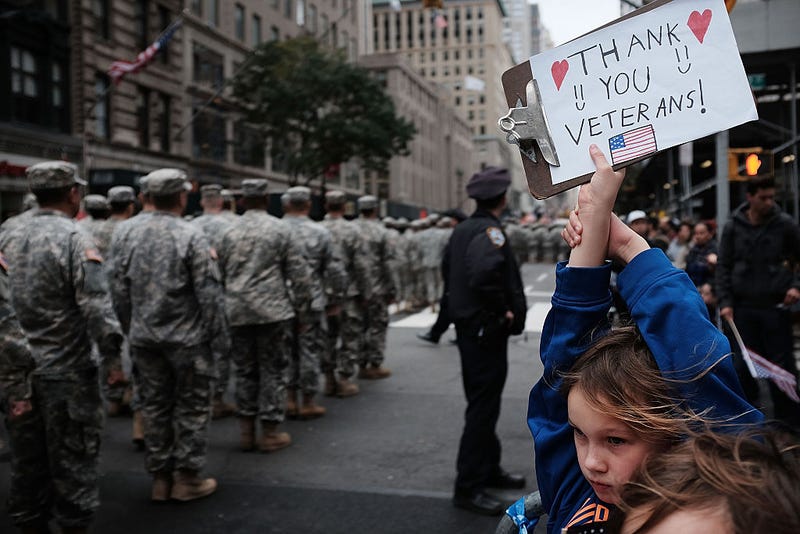
Honoring the country’s armed forces members on Veterans Day starts with knowing what to say to show them gratitude.
For more than a century, the U.S. has honored its veterans on the anniversary of the day an armistice with Germany was signed in 1918 to end World War I.
“To us in America, the reflections of Armistice Day will be filled with solemn pride in the heroism of those who died in the country’s service and with gratitude for the victory, both because of the thing from which it has freed us and because of the opportunity it has given America to show her sympathy with peace and justice in the councils of the nations,” said President Woodrow Wilson when he declared the first commemoration of the holiday in 1919.
There are currently around 18 million to 19 million veterans in the U.S. American Indians and Native Alaskans serve at a higher rate than any other demographic in the entire country, according to the United Service Organizations.
Today, those who want to honor veterans should keep in mind that each individual may want to be thanked in a different way.
“What one veteran may find complimentary, another may find offensive or condescending,” John Raughter, a U.S. Marine Corps veteran and deputy director of media relations for American Legion, explained to USA Today.
“There are 19 million veterans, with 19 million different opinions,” he added.
An example of this can be found in the diverse pool of social media messages posted on the holiday from Democrat and Republican U.S. politicians who have served in the military.
Raughter said it’s still best to thank a veteran for their service. He also said people should listen up if veterans want to speak.
“It is not a time for one to share their political opinions, or ask about how many kills or battles they have been in,” he said. “It is important to remember that Veterans Day is for all veterans, not just for those in combat.”
On that subject, Raughter also warned people not to make veterans “feel less of a veteran” if they were never deployed.
Shawn Brown, a U.S. Army veteran, told USA Today that people should also be cautious of acting like they know what a veteran went through.
“It gets under people's skin, especially if the veteran actually got down in the trenches and lost brothers and sisters in conflict,” Brown said. “Just be normal and ask them about their greatest accomplishments, both personal and professional, if they choose to share.”
Akilah McNair, a U.S. Army veteran, told USA Today people should consider holding off on saying they don’t support the military on Veterans Day.
“I've heard people say they don't support the military because they don't support war, but I haven't had many bad experiences with that,” she said.
Raughter said thanking veterans for their service is enough, and if there is a veteran-owned business in your area, to go visit and patronize.
Other ways to honor for veterans include donating to or volunteering for veteran support organizations and supporting local measures in your area to make veterans’ lives better.
LISTEN on the Audacy App
Sign Up and Follow Audacy
Facebook | Twitter | Instagram